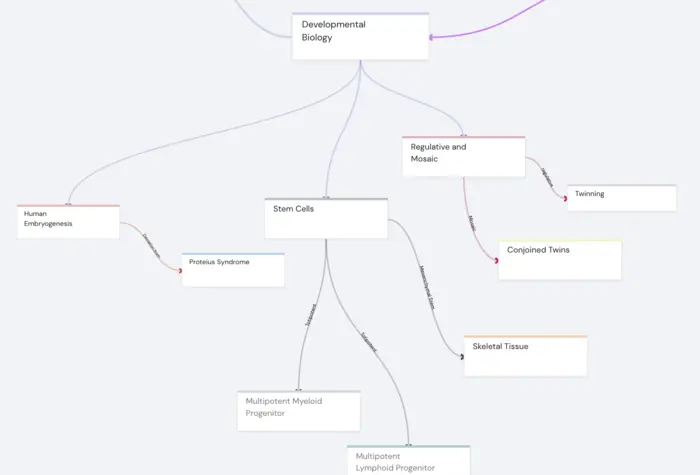Unlocking the Mystery: How is "Xi" Pronounced in Chinese?
Mastering Mandarin Chinese can feel like trying to solve a complex puzzle. One of the most common questions that learners often ask is, "how is xi pronounced in Chinese?" This is no surprise, as the Mandarin language is full of tonal complexities and pronunciation nuances that can seem daunting to learners, especially those used to the phonetics of English or other non-tonal languages. If you're one of those who've scratched their heads over the pronunciation of "xi" in Chinese, you're in the right place. This article will delve into the mystery behind the pronunciation of "xi", provide insights from native speakers, discuss the role of regional accents, and explore how the Traverse app can aid you in mastering Mandarin pronunciation. So let's dive in and unlock this linguistic riddle.
The Importance of Pronunciation in Mandarin Chinese
If you've ever tried to learn a new language, you'll know that accurate pronunciation is key. This is especially true for Mandarin Chinese, a tonal language where even the slightest change in pitch can alter the meaning of a word. Pronouncing "xi" correctly in Mandarin Chinese is therefore not just a question of sounding authentic. It's about ensuring clear, effective communication.
Understanding and mastering Mandarin pronunciation begins with grasping the three components of every Chinese sound: the initial, the final, and the tone. The initial and final are akin to the consonant and vowel in English syllables. The tone, however, is a unique feature of Mandarin, and it's where many learners stumble. Mandarin has four main tones and one neutral tone, each with a distinctive pitch contour.
When it comes to the pronunciation of "xi", it falls under what is known as a Pinyin syllable. Pinyin is a special system that was created to bridge the gap between Chinese characters and their pronunciation. It transcribes Chinese characters into the Roman alphabet, allowing learners to pronounce Mandarin sounds accurately. But it's important to remember that the Pinyin letters do not correspond exactly to English sounds. The pronunciation and spelling of Pinyin letters vary from their English counterparts.
It's also imperative to avoid common mistakes in Mandarin pronunciation. Treating Mandarin tones as similar to English intonations is one such error. While different intonations in English do not alter word meanings, in Mandarin, even with the same initial and final, different tones represent different characters and meanings.
Mastering the pronunciation of "xi", like learning to play a musical instrument, requires fine-tuning your vocal cords, honing your listening skills, and utilizing effective language learning techniques. It may seem challenging at first, but with consistent practice, you'll be able to unlock the mystery of "xi" and enrich your Mandarin learning journey.
The Mystery of "Xi": A Common Query Among Mandarin Learners
If you've ever tried to learn Mandarin, you've likely encountered the curious case of the pronunciation of the pinyin "xi". This sound, omnipresent in Mandarin Chinese, has left many learners scratching their heads. It's not quite like any sound in English, yet it's not entirely alien either. The pronunciation of "xi" is a riddle wrapped in a mystery inside an enigma, and it's one of the most frequently discussed topics among Mandarin learners.
The pinyin "xi" appears in numerous common words in Mandarin, such as "xìn" (heart) and "xiào" (laugh), making its correct pronunciation essential for clear and accurate communication. However, some learners have reported hearing discrepancies in the pronunciation of "xi", sometimes sounding akin to "she" in English, and other times closer to "see". This apparent inconsistency can make the pronunciation of "xi" seem like an elusive target that shifts just as you think you've grasped it.
Moreover, different audio courses and native speakers might pronounce "xi" differently, adding to the confusion. Is the pronunciation of "xi" dependent on the tone of the word, or is it influenced by regional accents? Does the pronunciation change in different contexts, or is there a standard way to pronounce it that applies across the board?
These are common questions that learners grapple with as they dive into the fascinating world of Mandarin Chinese. Demystifying the pronunciation of "xi" is a crucial step towards mastering Mandarin pronunciation, enhancing comprehension, and boosting your confidence in speaking the language. It's time to unravel this linguistic mystery and discover the secrets of the elusive "xi".
The Variations in Pronouncing "Xi" in Mandarin
The sound of Chinese "xi" can sometimes be a tricky puzzle piece in the grand mosaic of Mandarin pronunciation. This enigma often arises due to the variations heard in pronunciation among different speakers. In fact, according to a thread on the WordReference Forums, learners have noticed that "xi" is pronounced at times like "she" in English, and other times like "see." The word "xin," for instance, is sometimes pronounced as "shin," other times as "sin," and the same goes for "xiao" ("she-ao" or "see-ao").
The question then arises: which pronunciation is the standard in Mandarin? And does the variation in pronunciation depend on the tone of the word, or is it influenced by regional accents? The answer, as with many aspects of language learning, is not black and white.
Just like any other language, Mandarin is spoken in a variety of accents and dialects, which can affect the pronunciation of certain sounds. This means that while there is a standard pronunciation for "xi," the way it is pronounced can vary depending on the speaker's regional accent.
However, it's essential to note that the Mandarin "xi" is fundamentally different from both the English "she" and "see." The sound doesn't exist in English, making these comparisons only approximations. The Mandarin "xi" is a voiceless alveolo-palatal fricative sound, which is distinct from any sound in the English language.
Think about the diversity of accents in English: the word "water" is pronounced differently by speakers from London, New York, or Sydney, yet all of these pronunciations are recognized and understood by English speakers globally. The same principle applies to Mandarin and the pronunciation of "xi." It's a testament to the rich tapestry of language and the beauty of its diversity. So while you're striving to perfect your Mandarin pronunciation, remember to embrace the variations along the way. After all, it's these nuances that make language learning such a captivating journey.

The Correct Pronunciation of "Xi": Insights from Native Speakers
Dive into the fascinating world of Mandarin pronunciation with us as we decode the sound of "xi." This sound, while seemingly simple, has sparked numerous discussions among Mandarin learners due to its subtle variations.
First off, let's get one thing straight: the Mandarin "xi" is not pronounced exactly like the English "si" or "shi." While these English sounds may serve as rough approximations, the "xi" in Mandarin possesses a unique phonetic quality that sets it apart.
According to a group of native Mandarin speakers in a discussion on the WordReference Forum, the pronunciation of "xi" is neither "si" nor "shi." The consensus is that this Mandarin consonant has an "s"-like sound, but it is subtly different from any sound in the English language. One of the forum members, a native Mandarin speaker from Shanghai, suggests that "she" in English is closer to the pronunciation of "xi" in Mandarin. However, they emphasize that "si" is not the standard pronunciation, even though it is often used in certain regional accents.
Another Mandarin speaker from China recommends a practical approach to producing the "xi" sound. They suggest solidly holding your mouth as if you were pronouncing "yi," then making an airy sound.
It's also worth noting that the International Phonetic Alphabet (IPA) symbol for "xi" is [ɕ]. This sound exists in some Scandinavian languages and other languages like Japanese and Polish but is absent in English. Therefore, the English "sh" is only an approximation of the actual sound.
So, while there isn't a direct English equivalent for the Mandarin "xi", that shouldn't discourage you. With attentive listening, dedicated practice, and the aid of language learning tools like the Traverse app, you can master this and other Mandarin sounds.

The Role of Regional Accents in Pronouncing "Xi"
As you dive into the enchanting world of Mandarin Chinese, you may discover that the pronunciation of certain sounds, including "xi", can vary depending on regional accents. This diversity adds a rich tapestry of sounds that can be both fascinating and challenging for learners.
One such variation is observed in the pronunciation of "xi" in Mandarin. While an English approximation may sound like "she" or "see", the pronunciation can change depending on the speaker's regional accent. For instance, kirsitn, a senior member of the WordReference forum, found that words with "xi" are sometimes pronounced as "she", and other times as "see". This variation can also apply to words like "xin" and "xiao", pronouncing them sometimes as "shin" and "she-ao", and other times as "sin" and "see-ao".
This highlights the importance of understanding that Mandarin is not a monolithic language but is shaped by regional accents and variations. The pronunciation you hear might be influenced by the speaker's regional accent. It's crucial to note that while these accents add diversity to the language, they can also pose challenges for learners trying to nail down the correct pronunciation.
However, don't let the diversity of accents daunt you. Remember, language learning is a journey, and every challenge you overcome only makes you a more adept speaker. In fact, exposing yourself to different accents can enhance your understanding and appreciation of the language.
In the end, whether "xi" sounds more like "she" or "see" to you, what's most important is consistency in your own pronunciation. Strive to pronounce it the same way every time, and over time, your pronunciation will improve.
And remember, tools like the Traverse app can be invaluable in guiding you on your path to mastering Mandarin pronunciation, helping you navigate the nuances of Mandarin sounds, including the elusive "xi".

The Use of International Phonetic Alphabet (IPA) for "Xi"
Imagine having a precise GPS system that guides you accurately through the intricate pathways of Mandarin pronunciation. The International Phonetic Alphabet (IPA) is exactly that for language learners. It's a transparent and precise tool that offers a clear roadmap for articulating sounds in any language, including Mandarin. So, let's dive into how the IPA can help us decipher the pronunciation of "xi" in Mandarin.
In the IPA, each consonant, vowel, diphthong, and tone is represented with a unique symbol. This system cuts through the ambiguity of standard alphabets, where a single letter can represent multiple sounds. In other words, if a word is pronounced with a different sound, it’s written with a different symbol in IPA. This precision is particularly useful when your ears fail to catch the subtleties of Mandarin pronunciation.
The Mandarin consonant 'xi' is represented in the IPA as [ɕ]. This sound is described as a "voiceless alveolo-palatal fricative". To put it simply, it's an "s"-like sound but with a unique flavor that sets it apart from any sound in the English language.
While it may seem challenging to grasp at first, understanding the IPA notation for "xi" can significantly enhance your pronunciation skills. It's like installing a high-precision GPS in your Mandarin learning journey. It won't replace a good teacher or diligent practice, but it can certainly make your path clearer and your progress faster.
Understanding the nuances of the IPA can help you distinguish subtle differences in sounds that may be indistinguishable to an untrained ear. For instance, the Mandarin consonant 'b' is represented as [p] in IPA, denoting an unaspirated plosive sound. The same principle applies to vowels and diphthongs. For example, the Mandarin diphthong 'ai' is represented as [ai̯] in IPA.
Tones are another crucial aspect of Mandarin pronunciation. Mandarin is a tonal language, with each syllable having one of four tones, each with a distinct pitch contour. IPA provides a system for notating these pitch contours, assisting in the accurate production and perception of Mandarin tones. This visual guide helps you see the sounds you are trying to produce, making the learning process more concrete and tangible.
So, as you continue to unlock the mysteries of Mandarin pronunciation, don't forget to harness the power of the IPA. It can be your best ally in mastering the sounds of Mandarin, including the elusive pronunciation of "xi".

The Closest English Approximation to "Xi"
Ready to release your inner detective? Let's dive into the English language in search of the closest approximation to the Mandarin "xi" pronunciation. Our quest starts with a simple truth: no English sound perfectly captures the essence of "xi". However, we can still find an approximation that will guide us towards the correct pronunciation.
The sound of the Chinese "xi" is not entirely unfamiliar to English speakers. A senior member on the WordReference forum suggests the English word "she" to be the nearest equivalent. However, it's crucial to note that this is not a perfect match. The "sh" sound in "she" is only an approximation, capturing the spirit of "xi" but not its exact tonal quality.
Another member on the forum shares a vivid description of the pronunciation process. He advises holding your mouth as if pronouncing "yi" but with your mouth solid and air expelled out. It's like whispering the letter "y". Through this method, you might get closer to the true essence of "xi".
While these approximations can be helpful, they still fall short of capturing the unique phonetic character of "xi". The use of "she" and the "yi" method are akin to sketches of a landscape – they help us recognize the contours, but the full color and vibrancy of the scene are yet to be captured.
Remember, pronunciation is a complex process that involves the intricate coordination of your mouth, tongue, and vocal cords. It's a dance of sorts, where every move counts. So, as you practice the Mandarin "xi", focus on the feel of the sound just as much as the sound itself.
In the next section, we will explore how the pronunciation of "xi" is influenced by other languages. This will further deepen our understanding and aid us in honing our Mandarin pronunciation skills. But remember, perfect pronunciation is a journey, not a destination. With the Traverse App, you have a reliable companion for your Mandarin pronunciation endeavors. So, let's continue this journey together, unlocking the mystery of "xi".

The Influence of Other Languages on Pronouncing "Xi"
The mystery of the Mandarin "xi" pronunciation may not be so mysterious if you're familiar with certain other languages. Sometimes, the key to unlocking the Mandarin sound of "xi" lies in the phonetics of other languages. Let's delve into this fascinating cross-linguistic connection, which can provide additional insights into mastering the pronunciation of "xi".
The International Phonetic Alphabet (IPA) is an extremely useful tool when discussing pronunciation across languages. In IPA, the Mandarin "xi" sound is represented as an "s"-like sound, different from any sound in the English language. However, this sound does exist in several other languages. For instance, this sound is similar to the Japanese "し" (Romaji: shi), the Polish "si" (ś + i), and the Swedish "kjol". In some German dialects, this sound is found in words like "ich", while in Russian, the 'щ' sound is a double version of this sound.
It's important to note that these are only approximations and may not fully capture the unique sound of Mandarin "xi". However, these examples can provide a useful starting point for learners who are familiar with these languages. Remember, the goal is not to perfectly mimic these sounds but to use them as a guide towards the standard Mandarin pronunciation.
We've also discovered that regional accents can influence the pronunciation of "xi". For example, some speakers may pronounce "xi" closer to "si", while others maintain a pronunciation more akin to "she". These variations are often tied to regional accents, reminding us that Mandarin is a rich and diverse language spoken by millions of people across different regions.
By exploring the phonetics of other languages and understanding regional accents, we can gain a broader perspective on Mandarin pronunciation. The journey to mastering the Mandarin "xi" continues. With tools like the Traverse App and an open mind, you're well on your way to unlocking the sounds of Mandarin.

The Role of Traverse App in Mastering Mandarin Pronunciation
Unlocking the mysteries of Mandarin pronunciation, like the elusive "xi", can often feel like navigating a labyrinth. But imagine having a powerful tool at your fingertips, designed to transform the daunting task of mastering Mandarin pronunciation into an engaging and rewarding journey. Enter the Traverse App, your personal guide in this linguistic adventure.
With its state-of-the-art meta-learning techniques, Traverse offers an innovative and effective method to learn Mandarin. It doesn't just provide you with information; it takes you through a scientifically-proven learning technique called spaced repetition. This method involves reviewing information at increasing intervals over time, helping to move the knowledge from your short-term memory to long-term storage.
What does this mean for your "xi" pronunciation conundrum? It means that using the Traverse App, you will not only learn the correct pronunciation of "xi" but also retain this knowledge for a longer period. This retention is crucial when it comes to language learning, as it allows you to recall information quickly and accurately, leading to more fluent communication.
But the App doesn’t stop there. It recognizes that Mandarin is a tonal language, where each word's meaning can change based on the tone used. Therefore, getting the tones right is as important as getting the pronunciation correct. The Traverse App incorporates this into its teaching method, encouraging learners to exaggerate the tones during practice. This might feel odd initially, but it helps embed the correct pronunciation and tone into your muscle memory.
Moreover, the app provides you with flashcards for the most frequently used words and characters, allowing you to learn and review in a structured and efficient manner. This feature is particularly handy when trying to master tricky sounds like "xi".
The Traverse App, therefore, plays a fundamental role in mastering the pronunciation of "xi" and Mandarin as a whole. By utilizing cognitive science techniques and providing engaging and interactive learning materials, it simplifies the otherwise complex process of learning Mandarin.
Remember, mastering Mandarin pronunciation is not a sprint, but a marathon. The Traverse App is your steadfast companion in this race, helping you to keep going, learn consistently, and always be willing to learn. With the right resources and strategies, you will soon find yourself pronouncing "xi" like a native speaker, thereby taking a significant step towards Mandarin fluency.
Conclusion
Unraveling the mystery of how "xi" is pronounced in Mandarin Chinese isn't an easy task, but it's far from impossible. It requires patience, practice, and a keen understanding of the nuances in Mandarin pronunciation. As we've learned, the pronunciation of "xi" is influenced by various factors such as regional accents, influence of other languages, and the complexities of Mandarin phonetics itself. While there may not be a perfect English approximation for "xi", the use of the International Phonetic Alphabet (IPA) provides a reliable guide.
As a lifelong learner, you've shown curiosity and resilience in your quest to master Mandarin Chinese, and these qualities will undoubtedly serve you well as you continue to navigate the intricacies of the language. Remember, language learning is more than just acquiring vocabulary and grammar rules. It's about immersing oneself in a different culture, understanding the rhythm and melody of a new language, and embracing the challenges that come with it.
The role of tools like the Traverse App in your learning journey cannot be understated. Not only does it provide a platform for efficient learning, but it also incorporates science-backed methods that enhance your ability to remember and recall information. As you continue to explore Mandarin Chinese with Traverse, you'll find that the once daunting task of pronouncing "xi" and other Mandarin sounds becomes less intimidating and more enjoyable.
In conclusion, mastering the pronunciation of "xi" in Mandarin Chinese is a significant achievement in your language learning journey. It's an affirmation of your commitment and dedication to learning Mandarin. So, keep practicing, keep learning, and remember, every step you take brings you one step closer to fluency.
In your quest to learn Mandarin, don't just focus on the destination, but also savor the journey. After all, learning a new language is about more than just communication - it's about broadening your horizons, understanding different cultures, and experiencing the world in a whole new way. Never stop learning, because life never stops teaching.

